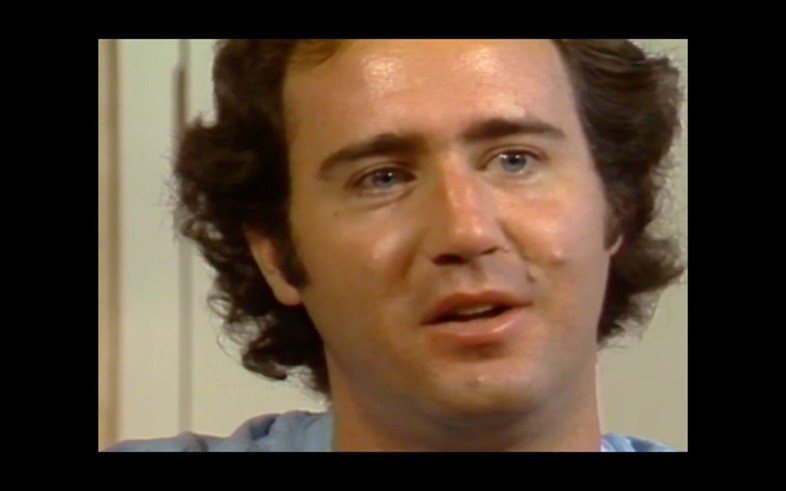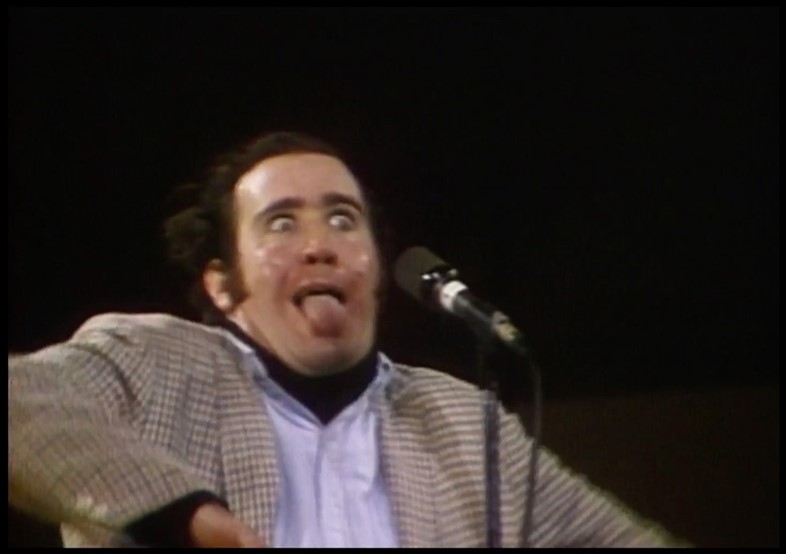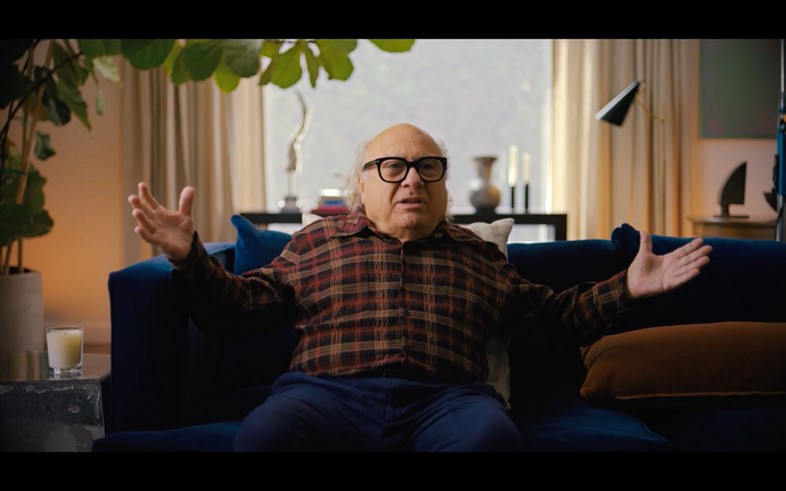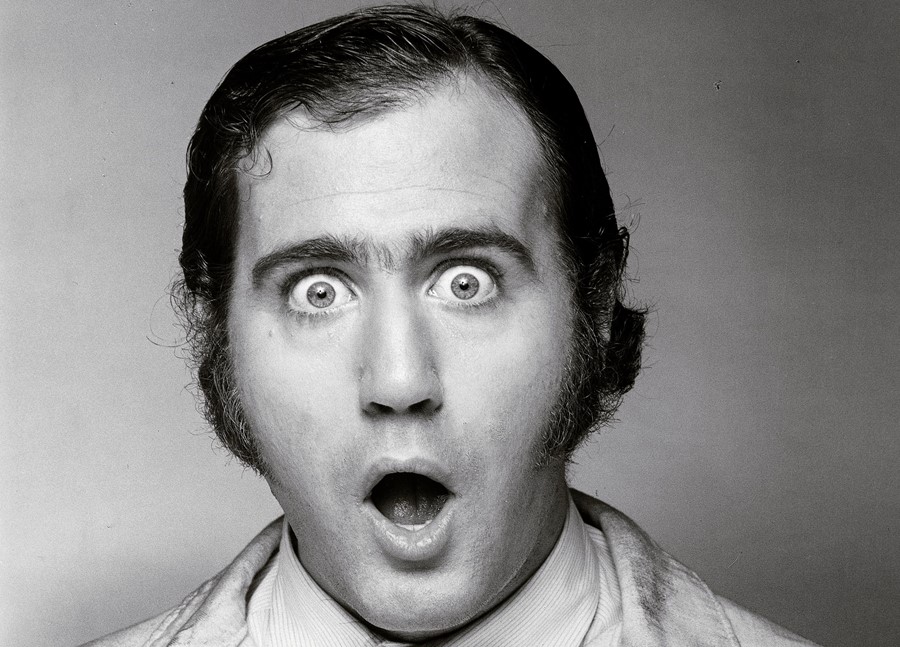After a screening in Copenhagen, the team behind the new documentary Thank You Very Much discuss their portrait of a deeply complex man with boundlessly creative ideas
40 years on from his death, Andy Kaufman remains a comic figure like no other. Such was his undying commitment to his immersive performance art routines, that even to this day some people still question if he faked his own death and his grand return is forthcoming. It turns out, as revealed in unearthed audio recordings in a new documentary, Thank You Very Much, that faking his own death was indeed something that had crossed Kaufman’s mind to pull off as a spectacular bit. It just turns out that cancer got in the way first.
Kaufman, often dubbed an “anti-comedian” who died at just 35, lived and breathed his characters. Whether playing the antagonistic, washed-up lounge singer Tony Clifton who would fight with audience members, a misogynistic heel in the wrestling world, paired with his tendency to intentionally bomb on stage in comedy clubs, he left audiences as bemused and stunned as often as he did in hysterics. “He was an unimaginable original,” says Josh Safdie. “He was an anomaly, which is what helped propel him to become one of the most important artists of the 20th century.”

The Safdie brothers, along with the Oscar-winning director Morgan Neville, are producers on the new film, which is directed by Alex Braverman. After a screening at CPH:DOX in Copenhagen, punctuated by bouts of laughter and teary snuffles, Braverman tells me that he connected with Kaufman at a young age. His parents had worked on Kaufman’s 1980 variety show at Carnegie Hall – one which featured Robin Williams sat in the corner pretending to be his grandmother and culminating in Kaufman taking the entire audience out, in busloads, at huge personal expense, for milk and cookies. As a kid, Braverman would watch the tape over and over again, fascinated by the eccentric man behind it all.
While Kaufman was depicted in the 1999 film, Man on the Moon, starring Jim Carrey, which also spawned its own documentary, Jim and Andy: The Great Beyond, Braverman felt there was still a bigger story to tell – especially when he was able to get hold of previously unseen archive material to do so. “So much of what you can find out there featuring Andy is the same clips over and over again,” he says. “They’re amazing and funny but they feel clipped and too short. So much of Andy’s work is really about suffering through the present, to really feel the passage of time. His live audiences were stuck with him and I wanted to capture that feeling. It doesn’t matter if it’s a good or a bad feeling but his work really demands absolute attention from the audience, whether they’re delighted or scared.”
Kaufman’s commitment to demanding attention was so endless he would even keep the act up off-stage or when the cameras weren’t rolling. He’d have phone calls with people fully in character; he panhandled in the street, worked tables as a busboy in restaurants at the height of his fame, and was known to go to the zoo and start screaming that a lion that had escaped and start running to the exit, causing total pandemonium. “I don’t think he ever really needed an audience of more than one person,” says Braverman, referring to that audience being just Kaufman himself.

Perhaps Kaufman’s most famous example of pushing the audience’s limits was when he simply read out the entirety of The Great Gatsby in one go, over several hours during a show. However, as the film reveals, such performances were not simply rooted in provocation or perverse playfulness but in a very true, pure and sincere form of artistic impression. The film does a magnificent job of capturing this multi-layered existence of Kaufman’s life, as it unfurls in equal parts sincerity, spirituality, surreality, and silliness. “It’s the yin and yang constantly at odds,” Safdie says, describing Kaufman and in many ways the film itself. “I think these yin and yangs were funny to Andy; they were performative even to him. But they were also his raw personalities on display.”
The fundamental question that has hovered over Kaufman, since he first started taking to the stage and then later appearing on Saturday Night Live in the 1970s, is usually centred around who he really was underneath it all. “I think Andy would take great joy in knowing that we’re still asking what was real and what wasn’t,” says Safdie. “That was what got him going and if someone else can find that pocket of thought then isn’t that what art is for, to understand the world in a slightly different way? I think the whole concept of reality with Andy exists outside the lines and it was something he wasn’t entirely interested in but also unconsciously obsessed with testing.”
Neville is more than happy to exist within the blurred lines of reality that Kaufman sketched out for himself. “I absolutely love the ambiguity of it,” he says. “It can be so silly and so intellectual at the same time. But it’s making you question things. And I think that is one of the most valuable things you can have – anything that gets us to question our lives is a sacred mission.”

After spending years in the company of Kaufman making the film, Braverman feels that maybe the question of – who is the real Andy – is actually back to front. “Whenever people talk about Andy, they always bring up this idea that he never really broke character,” he says. “But something that really blew me away while making this film is that I came to feel like the majority of us are actually the ones who are trapped in a character. We create a singular character for ourselves as we grow up and mature and become adults and there’s not a lot of avenues to really explore or express different pieces of ourselves. Because if you behave in a certain way that’s considered out of character you’ll have problems. What’s really beautiful about Andy is that he did have all of these avenues to be all these various versions of himself. I think that’s fearless.”
Despite being loaded with humour and bursting with Kaufman’s vast idiosyncrasies, Thank You Very Much is also a deeply moving portrait of a complex man with boundless creative ideas who died far too young. “I cry every time I watch the film,” says Safdie. “I cry at the end. I cry in the middle and I cry at the beginning. Andy was a pure soul. He’s still ahead of our time.”
A release date for Thank You Very Much is yet to be announced.
